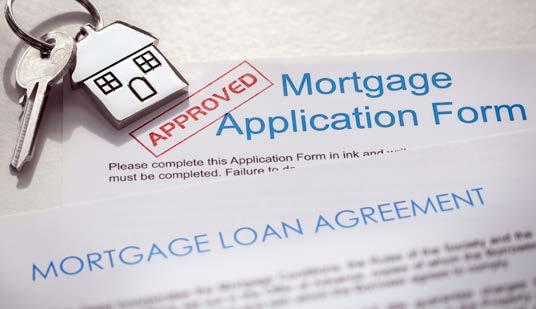
5 minute read
EIGHT TIPS TO REDUCE YOUR FOOD BILL
from Summer - 2023
1. Limit Eating Out
It's probably obvious, but takeout and even quick "cheap" burgers add up quickly. That's why hitting up your go-to restaurant less often is one of the most effective ways to lower your food budget. Of course, this doesn't mean to stop eating out entirely. Restaurants are cultural, they're social - they're not the enemy, but, when it comes to your budget, they can turn into a bit of a black hole. So how often should you eat out? It’s up to you. The key is moderation and balance. If you can’t stomach the idea of eating out less, know that you’ll have to cut your budget in other categories. Just remember that eating out truly is one of the largest chunks of your food budget, so think critically and carefully about how much you’re currently spending at restaurants and how much you want to be spending.
Advertisement
2. Plan Your Grocery Shopping

We’ve all been advised to create a grocery list and stick to it, but that’s only one way to save money at the store. Coupons, even if the savings seem small ($0.50 here, $1 there), make a difference in the long run. Also, grocery stores often send out a weekly ad; take notice and plan your meals for the weak around discounts. Finally, try buying staples that are affordable and versatile, things like bread, pasta, beans, and rice. You can use those things for a whole bunch of different meals and tailor them to your tastes.
3. Reduce Food Waste
Another full vegetable drawer ready for the garbage can? Wasting food is wasting money. Try canned or frozen produce instead! It lasts much longer and is just as good for you. Preservatives can be rinsed off canned foods and frozen is a-ok. Do your best to avoid spending money on food you won’t eat, and remember that good intentions can often pave a road to rotten zucchini...and lettuce...and grapes.
4. Buy in Bulk
You can save money per package or ounce when you buy in bulk. It’s a great strategy for foods you buy and eat often. Keep in mind, though, that buying more than you’ll actually eat isn’t saving you any money. Do you really need 15 pounds of onions? Plan how you’ll use something you buy in bulk before taking it to the register.
5. Set a Food Budget
Buying food without a budget is like forgetting your umbrella in a downpour—a recipe for disaster. In order to create a budget, though, you’ll need to know what’s reasonable. To figure that out, track your spending. After a month or two, assess how much you’re actually spending on food each week and then make a plan. Can you cut back? By how much? What’s doable? Once you have a baseline, you can start making adjustments. Create a spending limit and stick to it!
6. Plan for Leftovers
Try making big meals a few times a week - meals that you couldn’t possibly eat at once! Why? Leftovers! Leftovers are a great way to have ready-to-go meals and snacks that you don’t have to spend a lot for. Of course, try not to waste food! But if you’ll eat the leftovers, making them can stretch ingredients longer and get you more bang for your buck.

Buying food is essential, but if you’re not careful, it can also eat into your budget. We’ve all given into the temptation of dinner at an expensive restaurant or a thoughtless trip to the grocery store where you throw anything and everything into the cart. Unfortunately, these expenses add up quickly and can cause your food budget to balloon into something unsustainable. If you’ve been wondering how to reduce your food bill, consider these eight strategies.
7. Meal Prep
Meal prep isn’t just for the organized ones among us - no, seriously, everyone can meal prep. If you plan your meals ahead of time (or better yet, prepare them), you’ll be less likely to eat out when you’re in a bind or pressed for time. If this seems overwhelming, start small. Try making lunch the night before or putting together a dedicated drawer for go-to snacks (ooh and new picks each week?). You can also go big and cook the ingredients for a week of meals ahead of time or create “freezer meals” that you can pop into a slow cooker or oven. Whatever works for you is the perfect place to begin, and every bit of planning matters.
8. Brew Your Own Coffee

A lot of Americans need that little bit of a pick-me-up each morning—that’s fine! But recurring costs, like a daily latte, cause your money to disappear exponentially. Take coffee, for example. An average cup of coffee costs around $3. While that isn’t much on its own, a full month of 31 cups will cost you roughly $93. Meanwhile, a 12oz bag of coffee beans costs about $10 and gets you around 12 cups of coffee. That would mean you’re spending about $0.83 per cup, or just under $26 for a whole month. That’s a lot of savings over multiple months or years! If you need it, buy the extra cream or fancy toppings, too. It’ll still save you money in the long run.
Bring it all Together
Reducing your food bill is something most of us could really use, and yet, it’s one of the toughest expenses to cut down. It requires a complete shift in your mindset and a lot more awareness. But, with a little bit of effort, your changes can make a big difference.
Leadership Programs In Southeast Texas


Two of our leaders at the credit union participated in Leadership Programs over the past year. Amanda Baldwin, Talent and Benefits Director, is a graduate of Leadership Southeast Texas and Jessica Johnson, Branch Manager, is a graduate of Leadership Beaumont! Both programs present networking opportunities with leaders from a vast variety of careers and educate participants on opportunities and challenges in Beaumont and SETX.
| Educating Regional Leaders for 30 Years
UNLEASHING THE POWER | Of Remote Control Cards
The Remote Control Card feature empowers members to take charge of their financial transactions, making it a game changer in the realm of digital banking. Through a user-friendly mobile application, members can remotely manage and control their debit cards with ease.
TEMPORARILY LOCK/UNLOCK: Misplaced your debit card or suspect it may be lost? No worries! With the Remote Control Card feature, members can instantly lock their card to prevent unauthorized access. If the card is found, it can be easily unlocked, minimizing the risk of fraudulent activity.
Seamlessly managing debit card operations through a mobile application has never been easier, providing peace of mind and enhanced security. Embrace the future of banking and unlock a new level of flexibility and control with our Remote Control Card feature.
Congratulations to the graduating senior class of 2023. We are proud to announce that there are ten recipients of the Gulf Credit Union $1,000 scholarship this year. We commend you for your efforts, and we wish you all the best in your future endeavors.











Buying a new home can be stressful and exciting.
Gulf Credit Union is here to remove the stress and make your home buying experience a breeze. Our mortgage specialists will guide you from beginning to end. Whether you’re purchasing a home, buying land, building a barndominium or getting equity out of your existing home, we’re here to ease your mind. We offer low competitive fixed rates, No PMI, and we service all of our loans in-house. Your loan will stay with us until the end of your term and we will continue to be here to advise and answer any questions you may have.
To apply for a mortgage loan, contact a member of our team or apply online at http://gulfcreditunion.lendingoutpost.com/


For more information about mortgage loans, visit gecu.org or scan the QR code.


